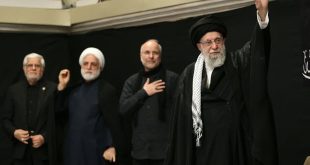Allameh Tabataba’i University (the largest public university specialized in humanities and social sciences in Iran) will hold the first international conference on ‘Social Policy in the Islamic World’ in May 2018 in partnership with a group of well-known academic institutions from around the world.
Lack of a comprehensive social policy agenda is seriously felt amid profound political upheavals in Muslim countries; hence this conference represents a timely response by the academic community.
With a population of about two billion people, Muslims are predominating in nearly 40 countries around the world from Morocco and Algeria through Iran and Tajikistan to Malaysia and Indonesia and still form a considerable part of other mixed societies. One of the most outstanding features of Islamic social teachings revolves around social welfare concepts, principles, as well as strategies and solutions. However, it is not possible to portray a single picture of social policy in Muslim societies given the vast diversity of historical, political, and economic circumstances they have experienced as well as various cultural characteristics they possess.
Despite these diversities they have to respond to more or less similar issues and problems with regard to family and gender, inequality and poverty, education, employment and health, housing and social care, as well as juvenile delinquency and criminal justice, etc. Hence, there is an important question on how do they deal with these issues and what is the status and role of Islamic teachings in such social policies.
This international conference is aimed to address these broad questions and therefore welcomes papers dealing with a wide range of issues outlined in the conference themes. While focusing on this specific agenda, the conference themes have been designed in a way to cover a broad range of related topics from a multidisciplinary perspective and therefore welcome both individual papers and closed panels from researches engaged in various aspects of social policy.
Important Dates
Abstract Submission Deadline: September 10, 2017
Full Paper Submission: December 4, 2017
Conference Date: May 12-13, 2018
Venue: Allameh Tabataba’i University, Tehran, Iran
Conference Themes
- Historical developments of social policy in Muslim societies
- Dominant social policy approaches in various policy domains (social security, family and gender policy, inequality and poverty reduction, employment, education, health, housing, social care, environment, social problems and criminal justice policy, etc.)
- Social policy arrangements regarding the main social policy target groups (children, youth, women, old people, people with disabilities, laborers, immigrants)
- Emergent patterns of social policies as a consequence of recent political developments (like the Arab Uprising) in Islamic countries
- State and non-state (NGOs, Charities, Social movements, etc.) forms of social welfare action in Muslim societies
- Eclectic adoption of elements in mainstream welfare ideologies (social democratic, conservative, neoliberal, etc.) and its relationship to Islamic culture and thoughts regarding social policy and welfare
- Comparative perspectives between Islam and other religious approaches to social welfare
- The relationship between social policy failure and the rise of extremism
- Public attitudes toward social policies among Muslims
- Globalization and role of international organizations in social policies of Muslim societies and local reactions
- Status of Co-operations and collaborations in the field of social policy among Muslim societies
- Appraising systems of financing social policy in Muslim societies
- Evaluation of successful and unsuccessful social policies in Muslim societies
- Social entrepreneurship and social innovation for social welfare
- Local social policies in capital cities of Muslim countries
- The relation between social policy values, principles, and instruments and Islamic teachings
- Linkages of social policy interventions with the post-2015 Sustainable Development Goals
- Social policies towards Muslim minorities in Western countries
- Social policies towards non-Muslim minorities in Muslim majority countries
Influence of local and transnational Muslim social actors on shaping social policies towards Muslim minorities in the West.
 Ijtihad Network Being Wise and Faithful Muslim in the Contemporary World
Ijtihad Network Being Wise and Faithful Muslim in the Contemporary World
